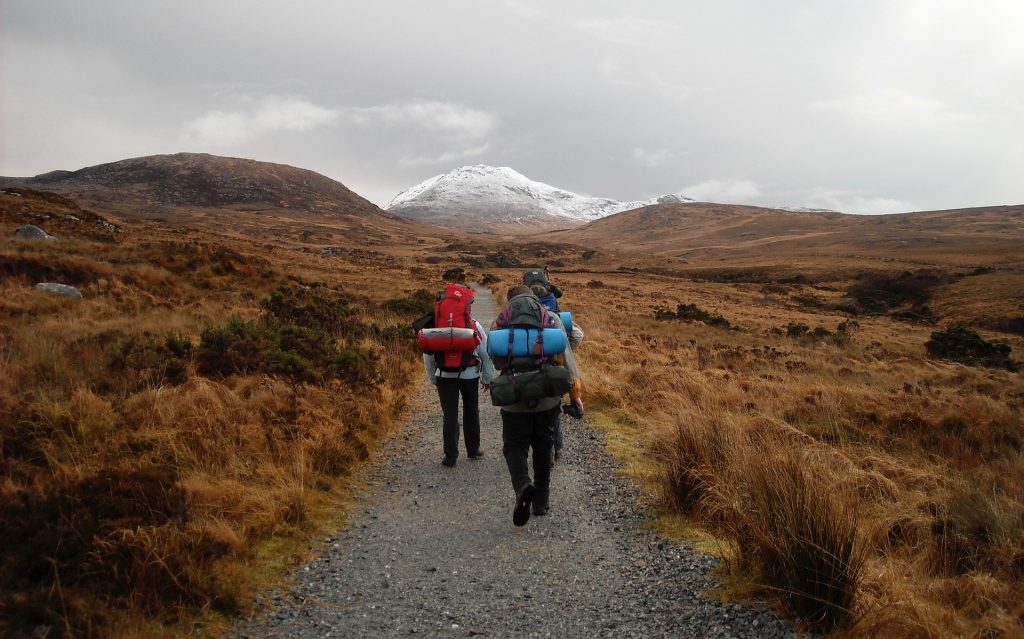
It would be nice if I could tell you my core message right at the beginning and thus enable you to decide right here whether it is worth reading on. But things are different. For the moment I am glad to have overcome this inhibition in front of a blank page. Just as Heinrich von Kleist expressed himself about the gradual development of thoughts while speaking, so I am writing here about a gradual development of my own thoughts while writing. The title promises something like a journey, a thought journey. I invite you to accompany me. I love travelling and moreover it is a beautiful metaphor.
The title hints at a back reference, refers to something circular and dynamic. This makes the subject interesting for me. But let’s start with the terms. Learning!? We’ve done that, haven’t we? I often hear this kind of attitude from people who limit learning to school and university and are grateful that they have survived this time. With this educational system, that’s easy to understand. And what you learn from it and what life teaches you accumulates like sediment between your ears into knowledge. And this is the resource for the way we think, act and decide.
You will argue here that this alone does not make us what we are, and that feelings, intuition have a significant influence. Quite right. Thus conscious knowledge and whatever is still in the human being. With this we finally meet the nicely termed self-constructed reality. In one respect, this reality shows a very idiosyncratic side: it does not take our knowledge into consideration, indeed it even ignores it. It is not uncommon for situations to arise in which we want to open a door, for example, which was always unlocked before, but now cannot be opened. How often have you pressed the handle in such a situation? No, you do not need to answer me. In principle we have come across a difference. This is what we usually call a problem. I remember a quote from Karl Popper, “All life is problem solving.” Most likely, he did not get that insight from a closed door. But I think he was right.
In a situation like that, you’re virtually forced to learn. And it’s nice when you are conscious of it, too. From there it is not far to another conclusion: All knowledge is preliminary. For me, this has become a very central tenet of my faith. It makes me critical of all certainties. But I can’t cope in everyday life without certainties either. Do you recognise that? Are you also confronted with the fundamental question of where what you believe you know for certain ends, and where what you doubts or what you do not know at all begins? You are right, this has the potential for a separate topic. If you have followed me so far, we certainly share the insight that if all knowledge is preliminary, there is no way of avoiding learning. With that we have reached a turning point and can start on the way back to learning.

I’m glad that you are still with me. I think we need to release the energy bound up in the obdurate relationship between learning and school and use it for new useful learning processes. We won’t get very far with the knowledge from school and studies today anyway. You cannot separate life and learning at all. Working and learning just as little. Learning liberated from the stress of school can really be fun in this sense, don’t you think? You might argue that what we learn, if it is to be effective, demands a change from us. Actually, that is the point. Who wants to change? Is that a reason why learning is so difficult for us? And under pressure it tends to create resistance. Yes, man is a creature of habit. W. Edward Deming once put it this way: “It is not necessary to change. Survival is not mandatory.” That is certainly not our conviction. I’m sure you’ll agree with me there. Now we are almost back where we started. Maybe something has already changed? We could certainly do another lap on this topic. So much left had to be left open in such a short time. But before we say goodbye: what could be the key message after these thoughts? From the compulsion to learn to the desire to learn? You think: No change without learning! Yes, that’s right too.

Now I thank you for your company. If you think of anything else, just write it in the comment field below. Till later…
Original text: PUE
English translation: BCO
Bildquellen
- journey-2406354_1920: Sharon Fisher / Pixabay
- mountaineering-455338_1920: Hermann Traub / Pixabay
- nature-1281574_1920: Pexels / Pixabay

